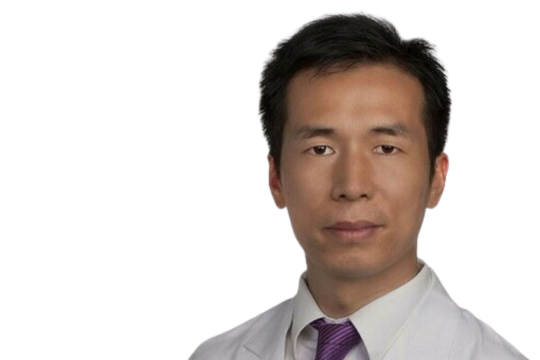
Zhaohui Wang
Dr. Zhaohui Wang currently serves as the Director of Precision Medicine and an Assistant Professor at the Terasaki Institute. Additionally, he holds an adjunct assistant professor position at Duke University. His educational background includes a Ph.D. in Biochemistry and Molecular Biology from Beijing Institute of Genomics, Chinese Academy of Sciences. Dr. Wang's postdoctoral tenure at the Preston Robert Tisch Brain Tumor Center involved functional genomics work for gliomas, uncovering associations between TERT promoter mutations and telomerase activation, as well as characterizing the gliomagenesis role of truncated PPM1D in brainstem glioma and identifying promising therapeutic avenues for targeting PPM1D mutant brainstem gliomas.
After the postdoctoral training, Dr. Wang joined the Duke Woo Center for Big Data for Precision Health as the Executive Director and played a pivotal role in co-inventing the innovative Micro-OrganoSphere (MOS) technology. This revolutionary platform enabled the rapid generation of patient avatars from biopsies or resected tissues for precision oncology. The ingenuity of MOS technology not only transformed organoid research but also catalyzed the establishment of Xilis, Inc., a biotech company spun off from Duke.
Dr. Wang then joined Xilis, Inc. as the Head of Early Research and Partnership Support. His innovative drive resulted in the development of imaging-based MOS drug assays, immunotherapy assays, and MOS based drug induced liver injury assays. He led the team and further invented four patents closely tied to MOS technology and implemented the MOS platform in the major pharmaceutical companies and top-tier cancer research centers.
At TIBI, Dr. Wang remains steadfastly committed to advancing precision medicine through ex vivo models, big data integration, and machine learning. Dr. Wang's research vision encompasses three key domains:
• Pioneering technology for next-generation patient avatars and its application in precision oncology and drug discovery
• Innovative ex vivo models for elucidating gliomagenesis mechanisms and identifying novel therapeutics.
• Application of iPSC-derived organoid culture in rare disease modeling and tissue transplantation.
